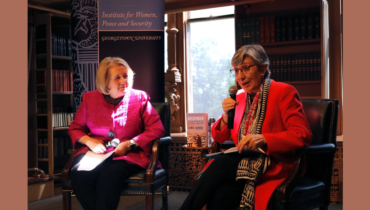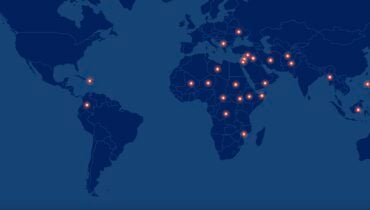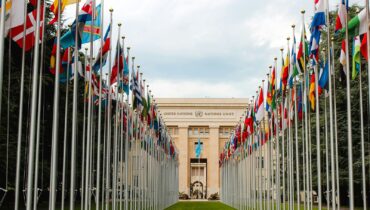Although the International Day of Education should be a day of celebration, for millions of Afghan women and girls today’s commemoration is one of mourning: More than 400 days have passed since the Taliban’s ban on women’s university education and more than 800 days have passed since the Taliban banned women and girls from pursuing an education beyond sixth grade.
“I feel exhausted and indifferent to everything. It’s like nothing matters anymore,” lamented one female Afghan student, voicing a sentiment shared by girls across the country who have been forced to leave school. Without school, female teachers and students have limited prospects: Those who can work spend long-hours performing menial labor for cents, while those who are unable to find work are increasingly pressured into forced marriages. Facing these grim futures, many Afghan girls leave the sixth grade in tears, knowing that it will likely be the last time they set foot inside a classroom.
The Taliban’s education bans have robbed Afghan women and girls of their fundamental rights and Afghanistan of its next generation of women leaders: Girls who had hoped to become doctors, lawyers, activists, and business leaders are now forced to remain home, unable to attend secondary schools and universities. In some provinces, girls as young as third grade have been turned away from their classrooms. After twenty years of progress, Afghanistan is once again the only country in the world where women and girls are systematically denied an education because of their gender.
This denial violates Afghan women and girls’ right to education, a universal right enshrined by the Universal Declaration of Human Rights, Convention against Discrimination in Education, and Convention on the Rights of the Child, amongst others. The violation of this right is particularly harmful, as UN experts describing the situation in Afghanistan explained:
“Education is an enabling right, which is crucial in and of itself and for realizing other human rights such as the rights to work, to an adequate standard of living, to health, to participate in society and communities, to equality before the law and to fundamental freedoms.”
Educating women and girls uplifts communities, and the access to employment opportunities and healthcare providers that education generates will be crucial to Afghanistan’s future.
Without vital educational and professional opportunities to buoy them through Afghanistan’s economic crisis, girls are facing interlocking challenges. Turned away from schools, girls face rising gender-based and domestic violence while at home. Unable to find work, girls are being sold as child brides so that their families can use dowries to buy food. These nightmarish conditions are driving a “pandemic of suicidal thoughts,” and are a core tenet of the Taliban’s gender apartheid regime: The education bans represent one of the most severe examples of systematic, gender-based discrimination aimed to subjugate women and girls.
This International Day of Education presents an opportunity to mobilize renewed international action to restore access to quality education for Afghan women and girls. International actors should pressure the Taliban to reverse their education ban, emphasizing that a regime that denies the fundamental rights of half of its population is not legitimate. While advocating for girls’ return to school, the international community must develop interim alternatives, including sponsoring online programs, funding scholarships for Afghan students, and working extensively with community-based organizations on the ground. Many Afghan-led initiatives have made strides in this area, providing comprehensive curriculums that integrate cultural contexts. We must provide these initiatives with political, financial, and logistical support, while looking to them and other Afghan community leaders to guide our collective fight to secure women and girls’ rightful place in Afghanistan’s classrooms.
“While the world may have given up on the dreams of a free and prosperous Afghanistan, the women and girls of that country have not,” said a member of the Onward for Afghan Women network Maryam Rayed. “I have not given up on my country, and the new generation of Afghan women hasn’t either. We persist in planting the roots that cannot be destroyed. We strive to educate and envision a future and a country worth fighting for.”


